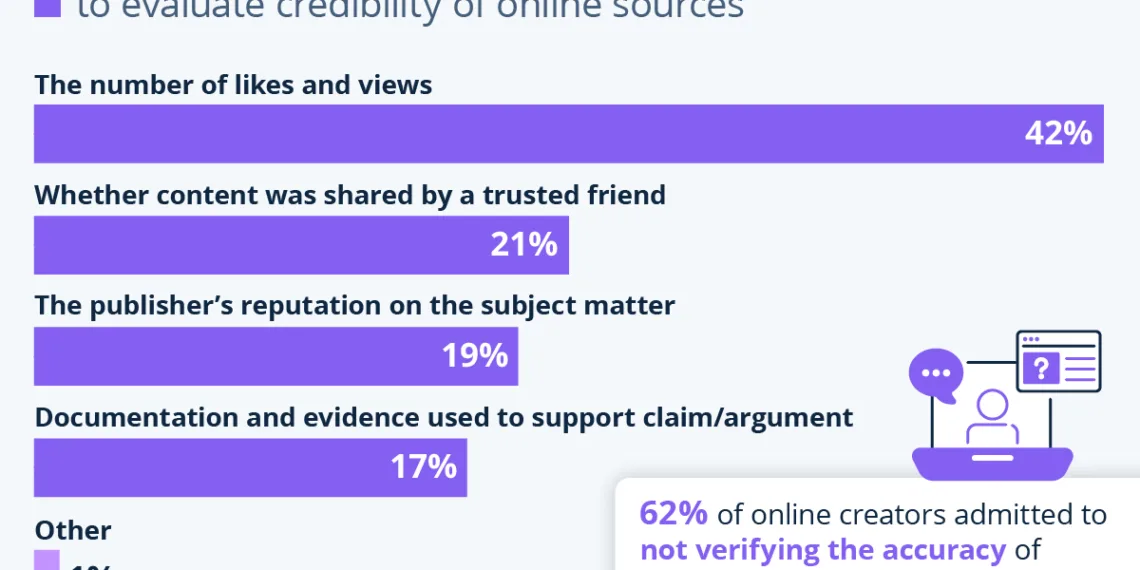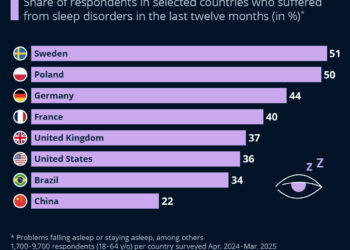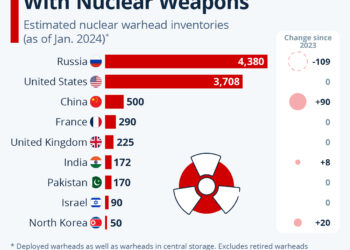The Importance of Fact-Checking in the Era of Influencers
As digital creators proliferate and their influence in shaping public opinion on various topics increases, there is a pressing need for these individuals to adopt rigorous standards of accuracy in their content. This necessity becomes particularly evident in areas like politics and current events, where misinformation can have serious consequences. Unlike traditional journalists, who undergo formal training in source assessment and fact-checking, many online creators lack these essential skills.
The Disconnect Between Influence and Accuracy
Recent findings from a UNICEF study highlighted a significant issue: 62% of online creators do not verify the accuracy of information prior to sharing it with their followers. This statistic is alarming considering that many people now rely on social media influencers as a primary source of news. The statistics reveal a troubling trend where engagement often supersedes the need for accuracy, leading to a culture where credibility is compromised.
Implications for Audience Trust
The reliance on influencers for information can undermine trust in media as a whole. When creators circulate unverified information, it can result in widespread misinformation, eroding the public’s confidence not only in the creators but also in the media landscape at large. This situation is particularly concerning given that many audience members may not possess the critical skills necessary to discern fact from fiction.
Evaluating Source Credibility: What’s at Stake?
In an attempt to gauge how influencers assess the credibility of their sources, the UNICEF study provided insight into the criteria they use. Alarmingly, 42% of creators consider metrics such as likes and views as significant indicators of a source’s reliability. This approach prioritizes popularity over accuracy, leading to a potential cycle of misinformation circulating widely on social media platforms.
Trust in Friends and Experts
Another notable finding is that a considerable number of creators, while assessing credibility, often turn to whether the information comes from trusted friends or supposed experts. This reliance on personal networks and perceived authority figures can blur the lines of factual reporting and subjective opinion, shedding light on how easily misinformation can spread through personal endorsements rather than through rigorous verification.
The Underutilization of Evidence-Based Criteria
Equally concerning is the result that only 17% of respondents utilized documentation or tangible evidence to validate claims made by sources. While in traditional journalism, the principle of supporting claims with factual documentation is paramount, this practice appears to be increasingly sidelined among online creators. The absence of evidence-based verification raises serious questions about the quality and trustworthiness of the information that gets disseminated.
The Role of Critical Thinking in Digital Literacy
Despite the troubling findings, it’s worth noting that 69% of the surveyed creators believe they play a role in promoting critical thinking and digital literacy. However, this belief stands in stark contrast to their actual practices. If creators genuinely wish to foster a culture of informed discussion, they must develop and apply the essential skills of digital literacy—chief among them being the ability to discern between credible information and misinformation.
A Call for Responsibility Among Creators
Given their platforms and influence, online creators bear a significant responsibility to prioritize fact-checking in their work. By establishing rigorous vetting processes and adhering to standards similar to those followed by traditional journalists, they can contribute positively to the media landscape. Adopting these practices not only enhances their credibility but also safeguards their audience from the harms associated with misinformation.
Empowering Audiences Through Media Literacy
As influencers hold considerable sway over public opinion, there is also a critical need to educate audiences on media literacy. Providing followers with the tools to critically evaluate information can serve as a bulwark against misinformation. When creators take their roles seriously and commit to accuracy, they not only elevate their own content but also empower their audiences to become discerning consumers of information.






